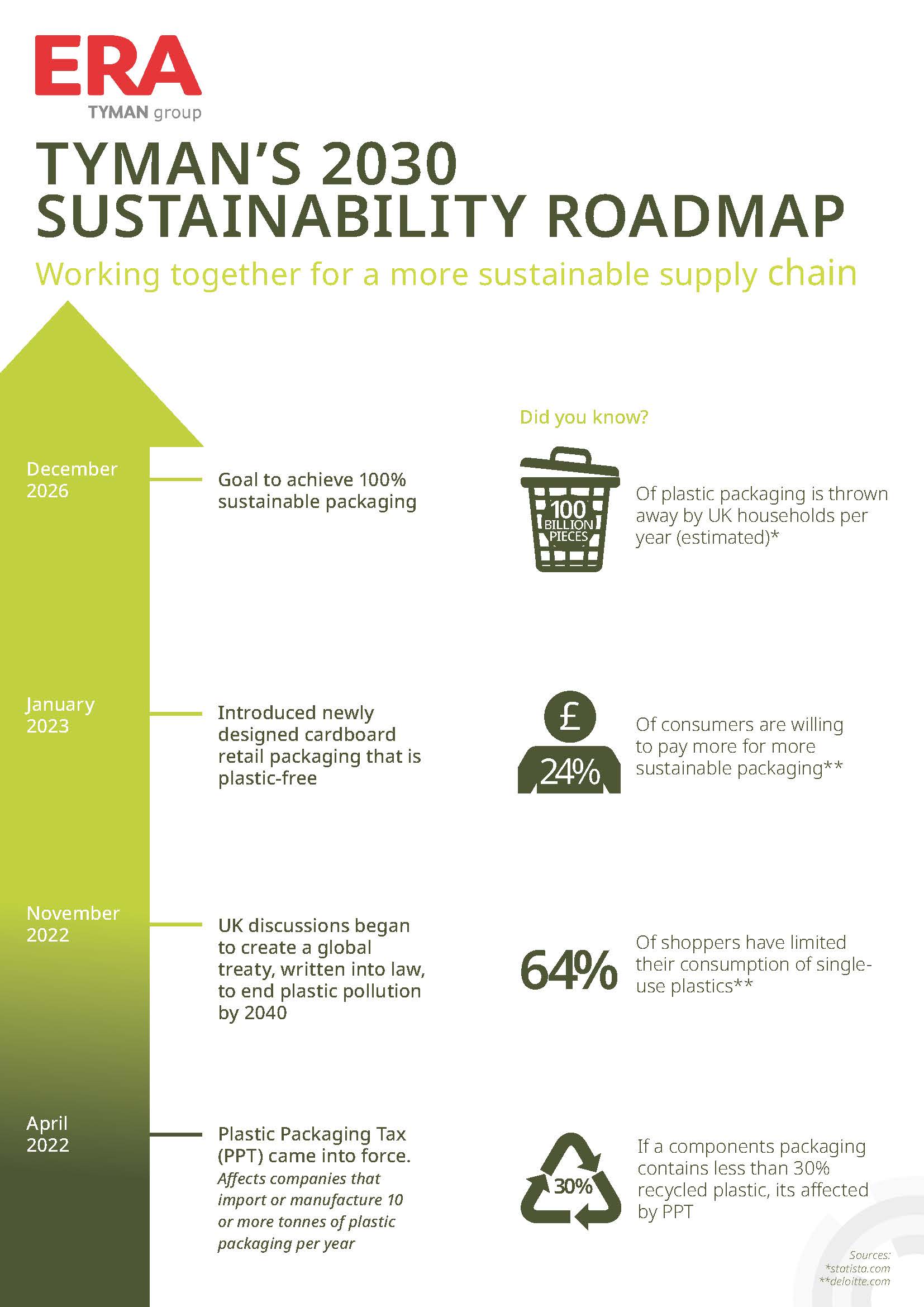Shining the spotlight on Extended Producer Responsibility
Jonathan Garrett, Group Health, Safety and Sustainability Director for Tyman, of which ERA forms part of the UK & Ireland division, discusses the importance for window and door manufacturers to comply with Extended Producer Responsibility (EPR) to successfully reduce packaging waste throughout the entire supply chain.
Introduced by the UK government on 1st January 2023, EPR requires businesses that have an annual turnover of £1 million or more and are responsible for over 25 tonnes of packaging in a calendar year, in addition to carrying out packaging activities, to report on their packaging data.
Large producers (those who have a £2 million turnover and are responsible for 50 tonnes of packaging), will be required to report in October 2023, whilst small producers (those who have a £1 million turnover and are responsible for 25 tonnes of packaging) won’t have to report until April 2024 on 2023 data.
EPR transfers the shared responsibility for the management of packaging waste to the packaging producers, who will have sole responsibility and pay the full cost of managing packaging once it becomes waste.

The legislation forms part of a major overhaul of waste packaging regulations by the UK government that aims to reduce the quantity of waste discarded and encourage manufacturers to utilise more sustainable product packaging that is responsibly sourced.
Although EPR reporting requirements differ for small and large organisations, both types of businesses will have to report on packaging from 1st January 2023 and may have to pay a penalty charge if they miss their respective reporting deadlines.
Whilst these regulations do not directly impact the packaging of window and door manufacturers’ own products, they will have to include this data within their own reporting processes as part of their procurement and supply chain operations.
It’s therefore extremely important that door and window manufacturers form relationships with suppliers who are already adhering to the requirements of EPR to not only demonstrate compliance but achieve responsible sourcing throughout the entire supply chain.
ERA is helping to streamline the process for window and door manufacturers by adopting a partnership approach that ensures fabricators collect all of the correct and necessary packaging data required to help identify their liability and mitigate any potential cost implications.
Whilst facilitating a necessary step forward in the reduction of plastic use and waste, the government’s updated packaging legislation is also providing the industry with an opportunity to collaborate throughout every stage of the supply chain to identify how packaging can be improved, whilst still successfully protecting products when in transit.
For window and door manufacturers, this includes working with suppliers to assess the role of tertiary packaging such as plastic wrap and pallet banding and identify how material quantities can be adequately reduced, without damaging the product. It also includes adjusting procurement practices, such as bulk ordering, to increase waste packaging savings by reducing the frequency of repeat wrapping and transportation that is required.
To support customers in achieving this, ERA is proactively improving the sustainability of its packaging, without negatively affecting the protection of its products when in transit, to achieve reductions in plastic packaging whilst simultaneously increasing the use of recyclable materials.

The activities form part of Tyman’s 2030 Sustainability Roadmap, which outlines the Group’s commitments to minimise its impact on the environment, including achieving 100% sustainable packaging by 2026 and eliminating production waste to landfill by the same year.
Looking ahead to future product development and packaging requirements, ERA is working in partnership with its customers to implement the use of recycled material in place of any plastic that cannot be removed entirely. By applying the principles of the circular economy, it is also working in conjunction with manufacturers to return as much waste packaging to its own sites, whilst also exploring reusable packaging options.
This forms part of Tyman’s ‘eliminate, minimise, replace’ strategy, which outlines how each brand within the group can increase the level of recycled material within its product packaging, whilst simultaneously reducing the level of packaging required.
The introduction of EPR is providing the window and door industry with the opportunity to forge even stronger supplier partnerships that are founded upon a proactive approach to sustainability, and by working together, every area of the sector can collectively take responsibility for positive environmental action.
